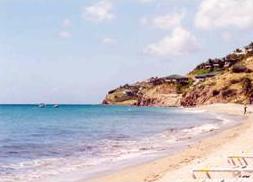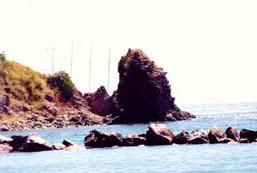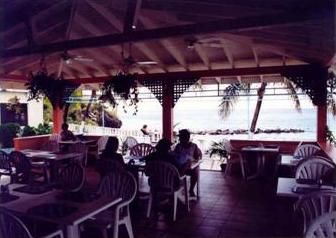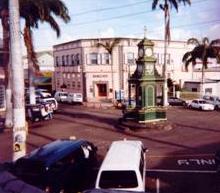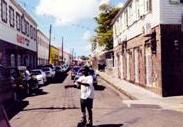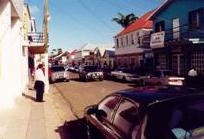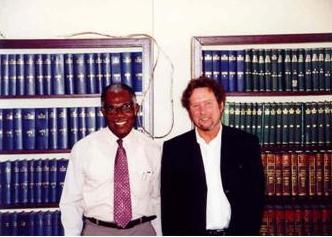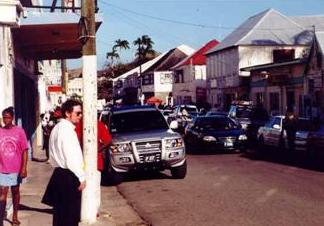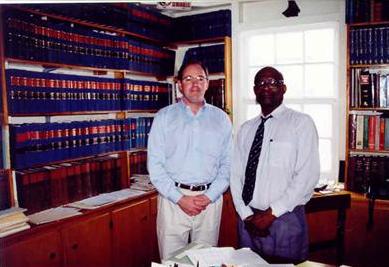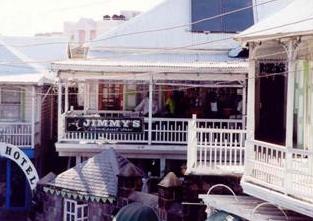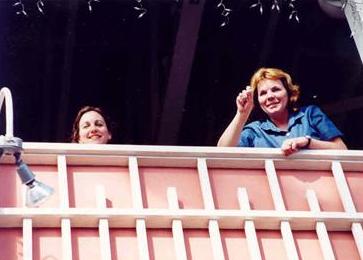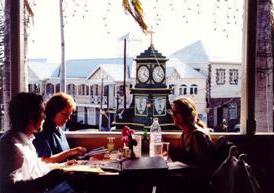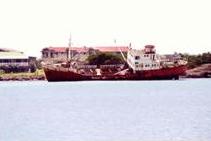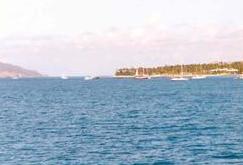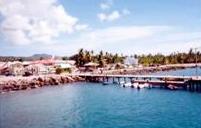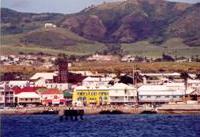Looking For A Lawyer In The West Indies
By John Merriam and Gordon Webb
(This is a true story. Some names have been changed.)
“My mother was seriously hurt on a cruise in the Caribbean last March. Her doctor bills are $50,000 and rising. The cruise line says it’s not responsible for medical expenses.” Mrs. Smith called me the summer of last year from Olympia, about her 66-year-old mother who lived in Spokane. “The back of my mother’s ticket says she can sue them only in federal court in Seattle. I got your name from Lawyer Referral.”
“How did she get hurt?” Most of my clients are seamen. For passengers, cruise ships are not held to as high a standard for safety and it’s harder to prove liability.
“She almost had her foot amputated while getting off a catamaran.”
“Was the catamaran taking her to or from the cruise ship?”
“No, I think it was during a tour organized on one of the islands.”
“Then it’s going to be difficult for me to help you. We have to show a connection between the cruise line and the tour company. Cruise lines are careful to insulate themselves from lawsuits by labeling everyone they deal with as an ‘independent contractor’. Even if the cruise line arranged the shore tour, I don’t think I can force it to pay your mother’s medical bills.” I once sued this same cruise line for medical malpractice and had to take a voluntary dismissal because I couldn’t refute a defense contention that the ship’s doctor was an independent contractor. “What island was she hurt on?”
“One of the Virgin Islands, I think, but I’m not sure.”
“There’s a U.S. District Court that covers some of the Virgin Islands, if that’s where the catamaran company is based. This is outside my area of expertise and I don’t have a lot of time right now, but you should definitely get a second opinion. Call this guy; he handles a lot of cruise ship cases.” I gave her the name and number of Gordon Webb. I wished her luck and hung up, thinking it was the last I’d hear of that case.
Several months later I got a call from Gordon Webb. “John, remember the client you sent me whose mother was hurt on a Caribbean cruise? It turns out she was hurt on the island of Nevis,” he pronounced it Neevis, “while on a catamaran operated from the neighboring island of St. Kitts. It’s a good liability case. Mrs. Smith’s mother was stepping onto a beach from the bow of the catamaran. The gangway consisted of wooden stairs that were suspended in the air, without being secured to shore. A crewmember called Bubbles was at the bottom of the gangway assisting the mostly-elderly passengers onto the beach for a barbecue. When Mrs. Smith’s mom reached the last step, Bubbles got distracted and turned away. She stepped onto the sand unassisted, just as a swell pushed the catamaran closer to shore. The gangway hit the back of her leg causing comminuted transverse fractures of the fibia and tibia. I think there is insurance coverage for the catamaran, and we may have a shot at personal jurisdiction!”
“Good work. But why are you telling me this?”
“Because I want your help suing the cruise line, and the one-year limitation period runs out in March. Anyway, this started out as your case.”
“This was never ‘my case’. I referred Mrs. Smith to you for a second opinion on how to tag the catamaran outfit on one of the islands, because I didn’t see a way to establish an agency relationship with the cruise line.”
“The catamaran excursion was booked with the cruise package through a travel agent in Washington. And I have reason to believe there are other links. We need to file suit here against the cruise line and explore the connections through discovery.”
“Well . . . OK.” I agreed reluctantly. I owed Gordon a favor from a different case we’d worked on together. “But first we need to find those connections, from the cruise line to the catamaran company. If the catamaran company, only, ends up holding the bag we’re going to have to sue it in St. Kitts. Nevis and St. Kitts are part of the British Commonwealth. I’m not buying a wig to get admitted to practice there!”
“Not anymore! Nevis and St. Kitts gained independence in 1983. Those two islands, together, are a separate nation. I’m trying to find a lawyer to associate with in Basseterre, the capital, on St. Kitts.”
“Where are those two islands, anyway?”
“They’re part of the Lesser Antilles in the Eastern Caribbean, still known as the West Indies due to Columbus’ problems with geography at the end of the 15th Century. Columbus never landed there, I don’t think, but he did sight the island of Nevis and named it. British colonists arrived on St. Kitts in the 1620s, not long after the Pilgrims landed in America to found Massachusetts. England and France fought over ownership of these islands for centuries. Now they are independent and populated by the descendants of slaves brought from Africa to cultivate sugar cane and cotton.”
“The only island in the Caribbean I’ve been to is Puerto Rico. Where are Nevis and St. Kitts from there?”
“Southeast. They’re closer to South America than to Florida. To give you a reference point, Grenada—Ronald Reagan’s favorite island in the Caribbean—is also part of the Lesser Antilles.”
“Now I understand. But let’s wait on suing the cruise line until we see what connections with the catamaran outfit we can find.”
Our conversation ended with Gordon reiterating his intention to find a reliable lawyer on St. Kitts.
Gordon called me several weeks later. “John, it’s almost impossible to have phone conversations with lawyers in St. Kitts. The connections are costly and bad; e-mail and faxes rarely work. They are definitely on ‘island time’. Mrs. Smith’s mother is a remarkable woman who’s been through a horrific year. She lost her husband to cancer and is trying to cope with gruesome leg injuries. I told her that we needed to go to St. Kitts to look for a lawyer. She said ‘OK’.” About two months remained in the one-year time limit to sue the cruise line.
“’We?’ Why can’t you go yourself?” I dismissed Gordon’s enthusiasm as inexperience, and suspected his main motivation for getting involved in the case was a trip to the Caribbean. I later would realize that Gordon really cared about Mrs. Smith’s mother.
“You’ve been practicing longer than me and I respect your judgment. We could take Kaye and Julia with us.” We both were married to women who would welcome a winter trip to St. Kitts.
“Well . . .” I paused to think. The suicide rate in Seattle usually spikes in early February, after gloomy weather proves interminable. Were I to be rendered dysfunctional by SAD (seasonal affective disorder) all my clients would suffer. I had a duty to go to St. Kitts! “OK . . . I’ll go.” I tried to sound reluctant.
Gordon arranged a six-day trip to Nevis and St. Kitts for the four of us. He said it was pure coincidence that our “business trip” started on Valentine’s Day.
“I finally got responses and made appointments to meet with lawyers who sound reputable, tomorrow in Basseterre,” Gordon said. We were sitting in the airport for San Juan, Puerto Rico, waiting for our broken-down plane to be repaired for the last leg of our journey to St. Kitts.
Gordon had the foresight to make afternoon appointments with the lawyers. Between security delays and mechanical problems, it took us 19 hours to travel from Seattle to St. Kitts. With the addition of four hours lost to reach Atlantic Time, we went to bed on St. Kitts—at Timothy Beach Resort—one hour before we arose in Seattle the previous day.
I awoke late in the morning and stepped out onto the balcony of our apartment-like second-story hotel room. Immaculate, expansive lawns stretched down to a salt-water lagoon. To the left, the lagoon met the Caribbean, bordered on either side by beaches of perfect white sand. A few surfers and divers played just offshore. A half-dozen pelicans seemed to crash land in the surf as they nose-dived for fish. I looked down and saw a monkey the size of a ten-year-old human loping along the golf path to an uncertain destination as a warm, fragrant wind caressed my face. We had arrived in paradise!
Breakfast at noon at the Sunset Café on the beach.
After that we defied jet lag, dickered with a taxi driver, then sallied forth to Basseterre, capitol for the West Indies.
The taxi dropped us off at Independence Square in the heart of Basseterre. Colonial buildings were juxtaposed against contemporary commerce. The driver gave us directions to Cayon Street where the lawyers had their offices. We went to a bank and purchased so many Eastern Caribbean dollars that Kaye and Julia agreed to temporary desertion. Gordon and I set out to find the lawyers.
Teeming streets were our path to find the first lawyer, Sir Horatio Alger. A letter to Gordon listed his address as
13 Cayon Street. Locating Cayon
Street, Gordon and I looked in vain for
numbers on the buildings. Frustrated,
we went into a tapestry shop to ask
directions.
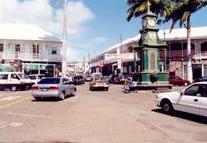
The two women we spoke to there had no conception of street numbers—theirs or anybody else’s—but, when asked, didn’t hesitate to direct us to the office of Sir Horatio Alger a mere three doors up the block.
Sir Horatio’s office was fetched by a narrow set of stairs from Cayon Street. On the second floor, Gordon and I walked into a spacious, lighted office staffed with charming black women. A paralegal escorted us to a well-appointed conference room/law library, saying that Sir Horatio had been detained but was expected shortly.
Left to our own devices, Gordon took photographs while I dove into the books to try to understand the law that applied to St. Kitts. It didn’t work; my head started spinning. There were too many decisions from too many islands, without any indication of which constituted stare decisis—binding precedent—in the West Indies.
Sir Horatio arrived, apologizing graciously for his delay. Somewhere between 50 and 70 years of age, he was very black and very articulate, with a crisp British accent. Seating us at the conference room table, he sat at the end and took charge, spitting rapid-fire questions at us. Gordon and I explained our case and asked about the legal system in the West Indies.
I didn’t retain all that Sir Horatio explained. As near as I can remember, he said that there was a six-year statute of limitation for injury claims, and that “normally” contingent fees were disallowed. Attorney fees were granted to the prevailing party and damages for pain and suffering, though disfavored, were allowed. Juries were only for criminal cases.
When asked about the structure of the court system, Sir Horatio explained that the Eastern Caribbean had local government functions but, for purposes of the judicial system, was a federation of islands. An Eastern Caribbean Supreme Court served all the islands, with one judge per island and a magistrate for smaller cases. His explanation of stare decisis between the various islands—and Great Britain—left me dazed and confused.
He said a new judge had arrived on St. Kitts a month before; a lawsuit was started by filing some sort of writ, and that it took about a year to get to trial.
“Sir Horatio,” I asked, “ what would you charge us to file the writ for this case and evaluate settlement value?”
“I am a solicitor and don’t try cases. My daughter, on Nevis, is a barrister. She would be doing the work. She would require a retainer of $10,000. Her hourly rate is $120.”
“Is that EC dollars?” An Eastern Caribbean dollar was worth about 40 cents in U.S. currency.
“No, U.S. dollars.”
“Wow!” I hoped my muffled exclamation was inaudible.
“John,” Gordon butted in, “we have another appointment.” We thanked Sir Horatio, promised to call after the weekend, and took our leave.
Our next appointment was at 59 Cayon Street. As we walked farther away from what appeared to be a constabulary near Sir Horatio’s office, the socio-economic status of our surroundings seemed to slip a bit. Gordon asked a couple of idlers sitting on a stoop where to find a lawyer named James Gibson.
“You mean Jamie? Yeah mon, he right there.” The man pointed to a short alleyway, just to his right.
Gordon and I walked by some chickens and ascended rickety stairs to the second floor of a two-story clapboard frame building. We entered a cramped room with a low ceiling. A black woman in her late 70s or early 80s grunted an acknowledgment of our presence. We sat down on a tattered sofa opposite a wall clock that had stopped.
I spent several minutes observing the movements of a cat with pink eyes, orange and white coat, before a middle-aged woman appeared to escort us to our audience with Jimmie James Gibson. We passed several friendly young women operating what looked like Tandy computers, with carbon paper stacked neatly to the side.
“Good afternoon, gentlemen. Please be seated.” A man in a white shirt and striped tie greeted us. He was every bit as black as Sir Horatio and spoke the King’s English just as crisply. But his desktop was a hopeless jumble of paper.
“Hello Mr. Gibson,” Gordon said as we sat down. “This is John Merriam, who’s assisting me on this case. It was good of you to see us on such short notice.” Gordon and I handed him our business cards. Mr. Gobson shuffled through the papers on his desk but could not find a card to exchange.
“Call me Jamie. I apologize for this disarray.” He motioned to our left, where a splintered cabinet door appeared to have been forcibly separated from its hinges. “There was a burglary here last night.”
Gordon started explaining our case. Jamie interrupted and said he understood the details from Gordon’s letter. “Your client was hurt on Pinney’s Beach. What do you wish of me?” Gordon said he wanted to establish connections between the catamaran outfit in Basseterre and the cruise line. Jamie picked up his telephone and made a series of quick calls. Within a few minutes he had determined the agents for both the cruise line and the catamaran company, confirmed the mutuality of interests between the two, and traced a connection to Miami. Jamie was a quick study.
“Jamie,” I said, “we’re down here because we don’t understand the legal system. If we are not successful in implicating the cruise line for an accident on Nevis, we need to know how we are to proceed in your courts.”
Jamie explained the system much as Sir Horatio had. He said he was both a solicitor and a barrister. He also said that a second judge was soon to arrive on St. Kitts and that the final court of appeal for the West Indies was the Privy Council in London. He fumbled around his desk again, trying to find his business cards.
Gordon and Jamie started trading war stories about passengers falling off gangways and how much alcohol intake was necessary—on the part of the passenger—for the vessel owner to escape liability for unsafe ingress and egress.
“Jamie,” I was nervous that he might even then be charging by the hour, “we’re working this case on a contingent fee basis and are trying to keep our expenses down. Is there an ethical way that we could pay you a little bit of money to evaluate this case and shepherd it through court in Basseterre, then switch to a higher hourly fee depending on the outcome?”
“Contingent fees are prohibited in the West Indies. That is considered barratry.”
“Well, then how much would you charge us to file suit and evaluate a likely outcome for purposes of settlement?”
“$500 U.S. We can make arrangements for the rate of my hourly fees later . . ..”
“That’s very reasonable of you. We’ll decide our course of action and get back to you by telephone Monday morning. For the moment, we should re-join our wives.” I rose to leave. Jamie and Gordon started telling more war stories. “Gordy!” I barked. “We can’t leave women waiting!” He got out of his chair, reluctantly, and we bade farewell to Jamie.
Back on Cayon Street, the temperature felt to be in the upper 80s. It was only a tropical breeze that prevented my shirt from sticking to skin.
“It looks like Jamie Gibson is our man,” Gordon proclaimed as we made our way back to Independence Square.
“I’m not so sure.”
“What do you mean? $500 versus $10,000!”
“I mean Jamie is disorganized—he couldn’t even find his business cards. His office looked like downtown Kandahar, Afghanistan after an air strike. What if the file for our case ends up on his desk? He might not find it until after the limitation period expires.”
“John, you can’t be serious. We can’t just throw $10,000 at this case when we don’t know the outcome!”
“I’m dead serious, Gordon. $10,000 is a fraction of the medical bills, alone. Do we really want to be sure that we recover those expenses for Mrs. Smith’s mom? I’ve been told and I believe that you have to spend money to make money.”
“OK, let’s leave the retainer aside and talk about who is the better lawyer.” Gordon was getting agitated. “Jamie has street smarts and understood immediately what to do in this case.”
“I agree, Jamie is sharp, but that’s not going to help him if he can’t find the file!” I also started feeling agitated. “Sir Horatio seems smart, too!”
“It’s not Sir Horatio who will be litigating this case, it’ll be his daughter! We know nothing about her.”
“Sir Horatio appears to run a well-oiled operation and, to mix metaphors, ‘acorns don’t fall far from the tree’. We can meet and check out her office on Nevis when we go over there to photograph Pinney’s Beach.”
“John, I think you’re being unreasonable. Do you just want to throw away $10,000?”
“No, Gordon, I think you’re being unreasonable. Adding plane fare, this trip is costing the four of us about $1,000 per day for six days. Do you really want to face the prospect of selecting the wrong lawyer after we came all this way?”
The argument continued to escalate. We reached impasse and agreed to let Kaye and Julia be the tiebreakers, then retraced our steps to Independence Square.
Kaye and Julia hailed us from a second story balcony, where they were sipping rum drinks at Jimmy’s Bar.
Gordon and I joined them and related our dilemma.
After Kaye and Julia heard us present argument, Julia asked: “How long before you have to start a lawsuit in the West Indies?”
“Six years,” Gordon responded. “A little more than five years from today.”
“Then it’s a no-brainer,” Julia said. “Retain the lawyer that wants $500.”
“She’s right,” Kaye added. “If he doesn’t do what he’s supposed to,
we’ll just have to come back and look for another lawyer.”
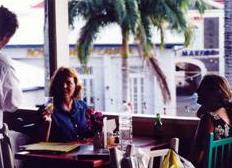
The remainder of our visit to the West Indies is better described in a travel magazine than a legal periodical. The only further ‘investigation’ we undertook—for tax purposes—was to photograph Pinney’s Beach on Nevis
where Mrs. Smith’s mother was hurt.
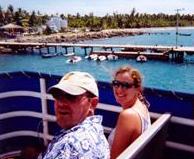
Back in Seattle, Gordon sent Jamie a $500 retainer and asked him to evaluate settlement value, were the case to be filed in the West Indies. Gordon then sued both the cruise line and the catamaran company, here in federal court, the day before the one-year limitation expired. The case settled after a few months for a confidential sum, an amount in the range suggested by Jamie.
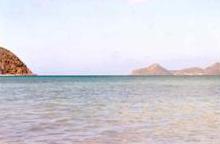
John Merriam is a former merchant seaman now working as a lawyer representing all types of seamen on wage and injury claims. Gordon Webb is a former boat builder who practices in Bellevue representing injury claimants.
